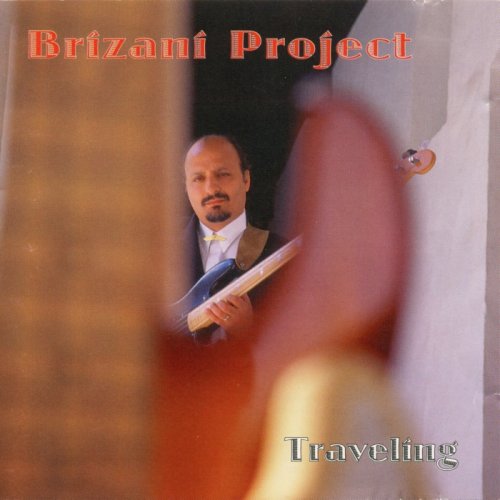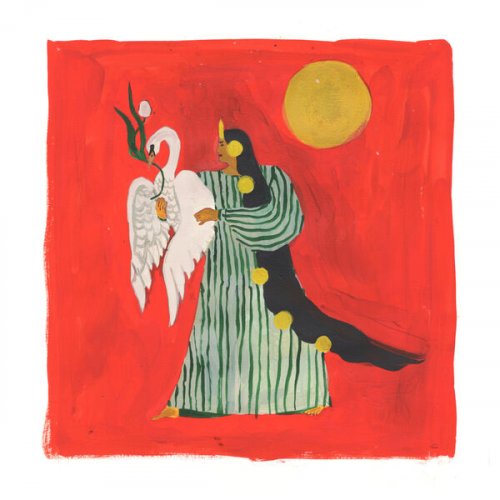Rick Derringer - Sweet Evil (Bonus Track) (1977)
- 10 Sep, 16:38
- change text size:
Facebook
Twitter
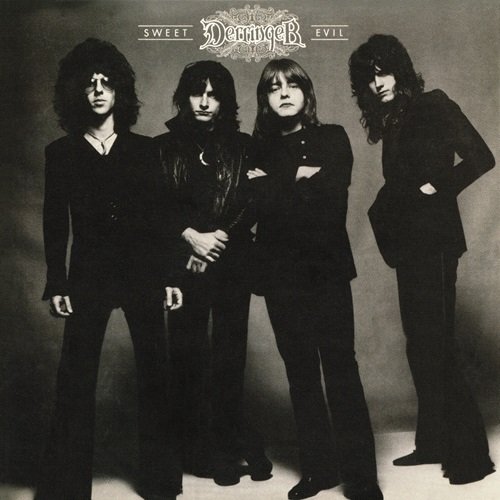
Artist: Rick Derringer
Title: Sweet Evil (Bonus Track)
Year Of Release: 1977
Label: Columbia, Legacy
Genre: Classic Rock, Blues Rock
Quality: Mp3 320 / Flac (tracks)
Total Time: 39:42
Total Size: 100/272 Mb
WebSite: Album Preview
Tracklist:Title: Sweet Evil (Bonus Track)
Year Of Release: 1977
Label: Columbia, Legacy
Genre: Classic Rock, Blues Rock
Quality: Mp3 320 / Flac (tracks)
Total Time: 39:42
Total Size: 100/272 Mb
WebSite: Album Preview
01. Don't Stop Loving Me 4:50
02. Sittin' By the Pool 4:39
03. Keep On Makin' Love 3:22
04. One Eyed Jack 4:43
05. Let's Make It 3:35
06. Sweet Evil 6:48
07. Drivin' Sideways 4:48
08. I Didn't Ask to Be Born 3:41
09. Don't Stop Loving Me (Mono Version) 3:17
As a guitarist, singer, songwriter, producer, bandleader, studio player, and sideman, Rick Derringer had a career that was as varied as it was successful. Scoring his first hit record with the McCoys' "Hang On Sloopy" when he was just 17, Derringer broke out as a solo star with his 1973 album All American Boy, which included the hit single "Rock And Roll Hoochie Koo." Though he would never make another album as successful, that hardly seemed to bother him – he toured and recorded as often as he pleased, he lent guitar work to recordings by Johnny Winter, Steely Dan, Todd Rundgren, Barbra Streisand, and Bette Midler, and produced a handful of hits for "Weird Al" Yankovic. And while he was best known as an arena-ready rocker, he was always interested in trying new things, recording 2002's jazzy Free Ride, 2009's blues set Knighted by the Blues, and gutsy power-trio rock on 2001's Doin' Business As …, recorded with Tim Bogert and Carmine Appice.
Richard Dean Zehringer was born in Celina, OH on August 5, 1947. His uncle was Jim Thornburg, a singer and guitarist popular in Ohio, and hearing him play made young Rick want to play himself. Rick's parents gave him an electric guitar when he turned nine years old, and several years later, he formed a band with his brother Randy Zehringer. After the family relocated to Union City, IN, Rick and Randy launched the McCoys, who soon made a splash locally. In 1965, the McCoys were hired to open a show for the Strangeloves, a band from Australia who had scored a hit with "I Want Candy." In truth, the Strangeloves had created a colorful backstory for themselves to disguise the fact they were really just three record producers from New York, Richard Gottehrer, Jerry Goldstein, and Bob Feldman. The producers had run across a song by Wes Farrell and Bert Berns, "My Girl Sloopy," and after seeing the McCoys, they were certain the young band could make it into a hit. Rick and the band changed the lyrics a bit, turning it into "Hang On Sloopy," and Gottehrer, Goldstein, and Feldman arranged for Berns' Bang Records to release the tune. The producers' instincts proved correct – "Hang On Sloopy" became a massive hit, hitting the top of the singles chart in 1965, and the McCoys became stars. The band's next single, 1965's "Fever," peaked at Number Seven, and in 1966, their cover of Ritchie Valens' "Come On, Let's Go" peaked at Number 22. It would be the last time the McCoys made the Top 40, and while they continued to be a popular live attraction, they bristled at the bubblegum image that had been imposed on the band. Eager for greater creative freedom, the McCoys left Bang for Mercury Records, and recorded a pair of albums – 1968's Infinite McCoys and 1969's Human Ball – where they experimented with a more ambitious, psychedelic approach. The Mercury albums fell on deaf ears, and the band faded out in 1969.
In 1970, blues guitar firebrand Johnny Winter was looking for a new backing band, and the Zehringer brothers – now billing themselves as Rick Derringer (saying Zehringer was too hard for most people to pronounce) and Randy Z – signed on, along with former McCoys bassist Randy Jo Hobbs. While they briefly considered calling the new group Johnny Winter & the McCoys, it was decided that the old band's name might confuse new fans, so they settled on simply calling themselves Johnny Winter And. They brought out an album, Johnny Winter And, in 1970, and toured heavily behind it, with two gigs recorded for a 1971 live LP. Derringer soon jumped ship to work with Johnny's brother, Edgar Winter, serving as both guitarist and producer for the 1971 album Edgar Winter's White Trash. Derringer also played guitar and sang on White Trash's 1972 live album Roadwork. White Trash broke up, and when Edgar formed the Edgar Winter Group, Derringer wasn't an official member. However, Rick co-produced their first album, 1972's They Only Come Out At Night, as well as playing guitar, bass, and percussion on several tracks. The LP produced two massive hit singles, "Free Ride" and the instrumental "Frankenstein."
The Edgar Winter Group's follow-up album, 1974's Shock Treatment, featured Derringer as producer and lead guitarist, though by this time, he had a hit of his own on his hands. His first solo album, All American Boy, released by the Columbia-distributed Blue Sky label, was issued in October 1973, and Derringer re-recorded the song "Rock and Roll Hootchie Koo" which had previously appeared on the Johnny Winter And album. "Rock and Roll Hootchie Koo" became a hit with a long shelf life, and cemented Derringer's reputation as a guitarist and singer. (The album also included the song "Hold," with lyrics by Patti Smith, making it her first song that gained widespread release.) Derringer's next solo effort, 1975's Spring Fever, was a fine LP that failed to enjoy the success of All American Boy, and he next formed a band called Derringer, whose self-titled debut arrived in 1976. The same year, a 1967 recording session Derringer and members of the McCoys had cut backing a singer and songwriter named Dick Glass was given a belated release under the titled The Glass Derringer, credited to Dick Glass, Featuring Rick Derringer and the McCoys. Derringer would later disown the release.
The band Derringer was back in 1977 with the album Sweet Evil, and their last studio effort, If I Weren't So Romantic I'd Shoot You, followed in 1978. It would be their last album, though their live work was well documented on 1976's Live in Cleveland, 1977's Live, and the 2000 archival release Live At The Paradise Theater, Boston, Massachusetts, July 7, 1978. Todd Rundgren co-produced 1979's Guitars and Women, with members of Rundgren's band Utopia backing him and Cheap Trick's Rick Nielsen writing two tunes for the set. 1980's Face to Face would be Derringer's final album for Blue Sky, and he would record for independent labels from this point on, but, as always, he had other irons in the fire. He contributed the memorable slide guitar on "Show Biz Kids" from Steely Dan's 1973 album Countdown to Ecstacy, and would also play on 1975's Katy Lied and 1980's Gaucho. He continued to regularly work with both Edgar Winter and Johnny Winter in the studio, and played guitar on Bette Midler's Songs for the New Depression (1976), Richie Havens' Connections (1980), Cyndi Lauper's True Colors (1983) and A Night to Remember (1989), Bonnie Tyler's Faster Than The Speed Of Light (1983), and Meat Loaf's Midnight at the Lost and Found (1983). In 1983, he also produced and played lead guitar on the debut album from musical satirist "Weird Al" Yankovic. They proved to be a good team in the studio, and Derringer would produce five more albums for "Weird Al" before Yankovic began producing himself on 1992's Off the Deep End.
After releasing Good Dirty Fun in 1983, Derringer focused on the blues on his next several solo projects, including 1993's Back to the Blues, 1994's Electra Blues, and 1996's Blues Deluxe. He was still in demand as a producer and session guitarist, and managed to catch a pop culture wave in 1985 when he helped write and produce The Wrestling Album, a collection of songs tied into the popularity of the WWF professional wrestling franchise. Derringer wrote and recorded "Real American" for the project, which would become Hulk Hogan's theme song and would later be adopted by a number of flamboyant political figures. In 2001, Derringer teamed up with the former Vanilla Fudge and Cactus rhythm section of bassist Tim Bogert and drummer Carmine Appice for a power trio they called DBA, issuing the album Doing Business As ... (It would be reissued in 2009 as The Sky Is Falling.) Later that year, he recorded a Christian pop album with his wife Brenda Hall and their two children, credited to the Derringers, titled Aiming for Heaven. The family group would record three more discs, Winter Wonderland (2005), We Live (2008), and Derringer X2 (2010). Fans got another surprise in 2002 with Free Ride, an album devoted to smooth jazz, including mellow re-interpretations of "Rock and Roll, Hootchie Koo" and "Frankenstein."
Derringer was part of an honor roll of famous guitarists who paid homage to the great Les Paul on 2005's American Made World Played, trading licks with Paul on a version of "Good Morning Little Schoolgirl" that also included Keith Richards and Buddy Guy. Derringer joined Ringo Starr for his Ringo Starr & his All Starr Band tour in 2010; it was the first of three times he'd work with the former Beatle's touring group. In 2014, Peter Frampton staged a tour he called Peter Frampton's Guitar Circus, featuring a number of his favorite players, and Derringer was part of the lineup along with Roger McGuinn of the Byrds, Leslie West of Mountain, Rick Nielsen, and David Hidalgo of Los Lobos. 2018 saw him participating in another package tour, HippieFest, which also featured Vanilla Fudge, Badfinger, and Mitch Ryder. In 2022, Derringer re-recorded a number of his best known tracks for the album Rock and Roll Hootchie Koo: The Best Of – Relaunched, and in 2024, he issued the digital album Rock the Yacht and the fifty-song anthology My Double Gold Life. They marked the end of his recording career; Rick Derringer died on May 26, 2025. He was 77 years of age. ~ Mark Deming
Richard Dean Zehringer was born in Celina, OH on August 5, 1947. His uncle was Jim Thornburg, a singer and guitarist popular in Ohio, and hearing him play made young Rick want to play himself. Rick's parents gave him an electric guitar when he turned nine years old, and several years later, he formed a band with his brother Randy Zehringer. After the family relocated to Union City, IN, Rick and Randy launched the McCoys, who soon made a splash locally. In 1965, the McCoys were hired to open a show for the Strangeloves, a band from Australia who had scored a hit with "I Want Candy." In truth, the Strangeloves had created a colorful backstory for themselves to disguise the fact they were really just three record producers from New York, Richard Gottehrer, Jerry Goldstein, and Bob Feldman. The producers had run across a song by Wes Farrell and Bert Berns, "My Girl Sloopy," and after seeing the McCoys, they were certain the young band could make it into a hit. Rick and the band changed the lyrics a bit, turning it into "Hang On Sloopy," and Gottehrer, Goldstein, and Feldman arranged for Berns' Bang Records to release the tune. The producers' instincts proved correct – "Hang On Sloopy" became a massive hit, hitting the top of the singles chart in 1965, and the McCoys became stars. The band's next single, 1965's "Fever," peaked at Number Seven, and in 1966, their cover of Ritchie Valens' "Come On, Let's Go" peaked at Number 22. It would be the last time the McCoys made the Top 40, and while they continued to be a popular live attraction, they bristled at the bubblegum image that had been imposed on the band. Eager for greater creative freedom, the McCoys left Bang for Mercury Records, and recorded a pair of albums – 1968's Infinite McCoys and 1969's Human Ball – where they experimented with a more ambitious, psychedelic approach. The Mercury albums fell on deaf ears, and the band faded out in 1969.
In 1970, blues guitar firebrand Johnny Winter was looking for a new backing band, and the Zehringer brothers – now billing themselves as Rick Derringer (saying Zehringer was too hard for most people to pronounce) and Randy Z – signed on, along with former McCoys bassist Randy Jo Hobbs. While they briefly considered calling the new group Johnny Winter & the McCoys, it was decided that the old band's name might confuse new fans, so they settled on simply calling themselves Johnny Winter And. They brought out an album, Johnny Winter And, in 1970, and toured heavily behind it, with two gigs recorded for a 1971 live LP. Derringer soon jumped ship to work with Johnny's brother, Edgar Winter, serving as both guitarist and producer for the 1971 album Edgar Winter's White Trash. Derringer also played guitar and sang on White Trash's 1972 live album Roadwork. White Trash broke up, and when Edgar formed the Edgar Winter Group, Derringer wasn't an official member. However, Rick co-produced their first album, 1972's They Only Come Out At Night, as well as playing guitar, bass, and percussion on several tracks. The LP produced two massive hit singles, "Free Ride" and the instrumental "Frankenstein."
The Edgar Winter Group's follow-up album, 1974's Shock Treatment, featured Derringer as producer and lead guitarist, though by this time, he had a hit of his own on his hands. His first solo album, All American Boy, released by the Columbia-distributed Blue Sky label, was issued in October 1973, and Derringer re-recorded the song "Rock and Roll Hootchie Koo" which had previously appeared on the Johnny Winter And album. "Rock and Roll Hootchie Koo" became a hit with a long shelf life, and cemented Derringer's reputation as a guitarist and singer. (The album also included the song "Hold," with lyrics by Patti Smith, making it her first song that gained widespread release.) Derringer's next solo effort, 1975's Spring Fever, was a fine LP that failed to enjoy the success of All American Boy, and he next formed a band called Derringer, whose self-titled debut arrived in 1976. The same year, a 1967 recording session Derringer and members of the McCoys had cut backing a singer and songwriter named Dick Glass was given a belated release under the titled The Glass Derringer, credited to Dick Glass, Featuring Rick Derringer and the McCoys. Derringer would later disown the release.
The band Derringer was back in 1977 with the album Sweet Evil, and their last studio effort, If I Weren't So Romantic I'd Shoot You, followed in 1978. It would be their last album, though their live work was well documented on 1976's Live in Cleveland, 1977's Live, and the 2000 archival release Live At The Paradise Theater, Boston, Massachusetts, July 7, 1978. Todd Rundgren co-produced 1979's Guitars and Women, with members of Rundgren's band Utopia backing him and Cheap Trick's Rick Nielsen writing two tunes for the set. 1980's Face to Face would be Derringer's final album for Blue Sky, and he would record for independent labels from this point on, but, as always, he had other irons in the fire. He contributed the memorable slide guitar on "Show Biz Kids" from Steely Dan's 1973 album Countdown to Ecstacy, and would also play on 1975's Katy Lied and 1980's Gaucho. He continued to regularly work with both Edgar Winter and Johnny Winter in the studio, and played guitar on Bette Midler's Songs for the New Depression (1976), Richie Havens' Connections (1980), Cyndi Lauper's True Colors (1983) and A Night to Remember (1989), Bonnie Tyler's Faster Than The Speed Of Light (1983), and Meat Loaf's Midnight at the Lost and Found (1983). In 1983, he also produced and played lead guitar on the debut album from musical satirist "Weird Al" Yankovic. They proved to be a good team in the studio, and Derringer would produce five more albums for "Weird Al" before Yankovic began producing himself on 1992's Off the Deep End.
After releasing Good Dirty Fun in 1983, Derringer focused on the blues on his next several solo projects, including 1993's Back to the Blues, 1994's Electra Blues, and 1996's Blues Deluxe. He was still in demand as a producer and session guitarist, and managed to catch a pop culture wave in 1985 when he helped write and produce The Wrestling Album, a collection of songs tied into the popularity of the WWF professional wrestling franchise. Derringer wrote and recorded "Real American" for the project, which would become Hulk Hogan's theme song and would later be adopted by a number of flamboyant political figures. In 2001, Derringer teamed up with the former Vanilla Fudge and Cactus rhythm section of bassist Tim Bogert and drummer Carmine Appice for a power trio they called DBA, issuing the album Doing Business As ... (It would be reissued in 2009 as The Sky Is Falling.) Later that year, he recorded a Christian pop album with his wife Brenda Hall and their two children, credited to the Derringers, titled Aiming for Heaven. The family group would record three more discs, Winter Wonderland (2005), We Live (2008), and Derringer X2 (2010). Fans got another surprise in 2002 with Free Ride, an album devoted to smooth jazz, including mellow re-interpretations of "Rock and Roll, Hootchie Koo" and "Frankenstein."
Derringer was part of an honor roll of famous guitarists who paid homage to the great Les Paul on 2005's American Made World Played, trading licks with Paul on a version of "Good Morning Little Schoolgirl" that also included Keith Richards and Buddy Guy. Derringer joined Ringo Starr for his Ringo Starr & his All Starr Band tour in 2010; it was the first of three times he'd work with the former Beatle's touring group. In 2014, Peter Frampton staged a tour he called Peter Frampton's Guitar Circus, featuring a number of his favorite players, and Derringer was part of the lineup along with Roger McGuinn of the Byrds, Leslie West of Mountain, Rick Nielsen, and David Hidalgo of Los Lobos. 2018 saw him participating in another package tour, HippieFest, which also featured Vanilla Fudge, Badfinger, and Mitch Ryder. In 2022, Derringer re-recorded a number of his best known tracks for the album Rock and Roll Hootchie Koo: The Best Of – Relaunched, and in 2024, he issued the digital album Rock the Yacht and the fifty-song anthology My Double Gold Life. They marked the end of his recording career; Rick Derringer died on May 26, 2025. He was 77 years of age. ~ Mark Deming

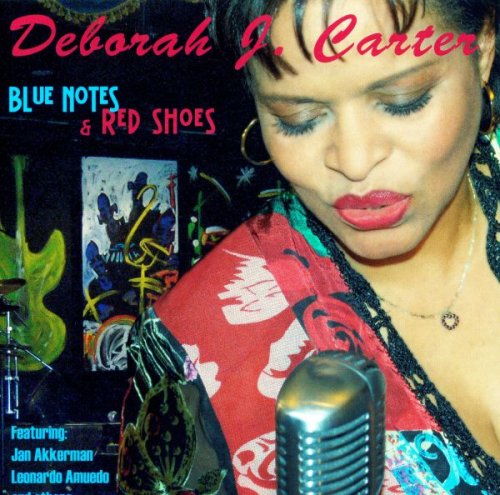
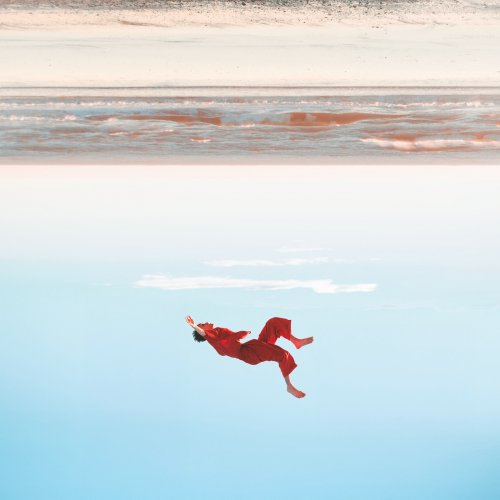
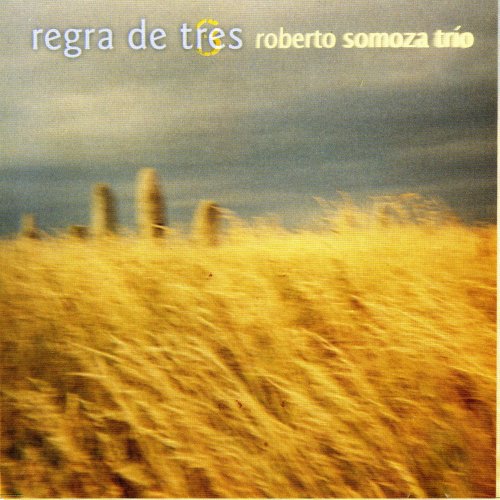
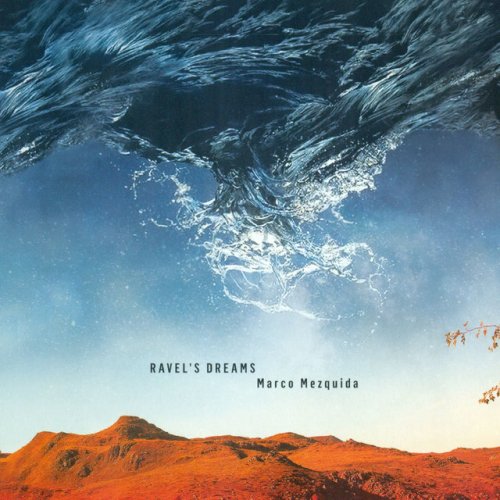
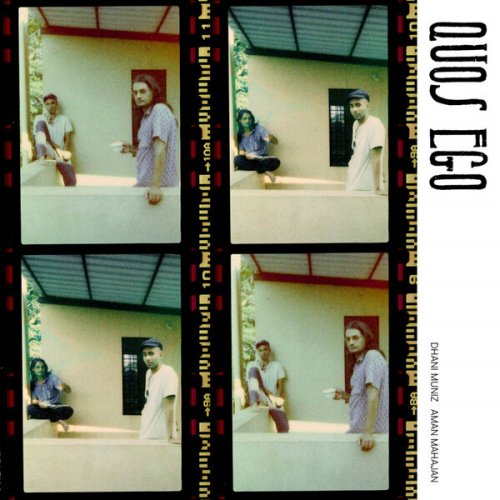
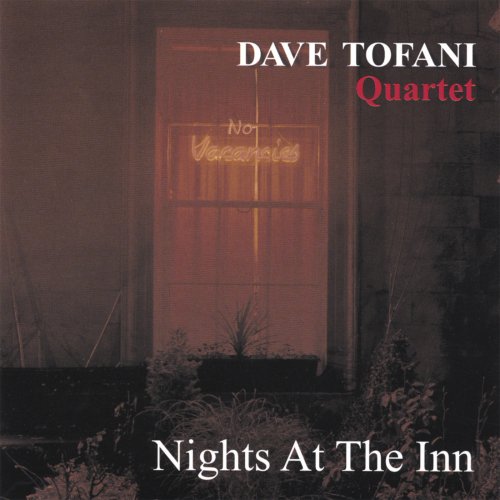
![Tiziano Tononi, Daniele Cavallanti & Nexus - Open Mouth Blues (Remastered) (2026) [Hi-Res] Tiziano Tononi, Daniele Cavallanti & Nexus - Open Mouth Blues (Remastered) (2026) [Hi-Res]](https://www.dibpic.com/uploads/posts/2026-02/1771515311_cover.jpg)
